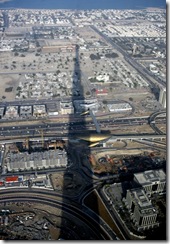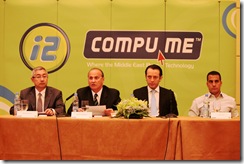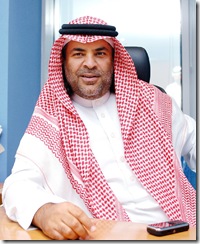While estimates of the number of residents who have left the UAE over the past 18 months as a result of the global economic downturn vary between tens of thousands and hundreds of thousands, the country’s mobile retailers are clearly feeling the pinch of the quieter operating environment
 A shadow has been cast over the UAE’s mobile retailer market as trading conditions have tightened exceptionally over the past 18 months (Getty Images)
A shadow has been cast over the UAE’s mobile retailer market as trading conditions have tightened exceptionally over the past 18 months (Getty Images)
In April this year, local media in the UAE reported that mobile phone retailer Cellucom had closed all of its outlets across the country as it faced liquidation and a court case instituted by its majority shareholder Al Rostamani Group. At the time the retailer had more than 25 stores in the UAE as part of a network of 500 shops in the Middle East, Africa and India.
Al Rostamani Group held a 51 per cent share of Cellucom and said it had filed for liquidation of Cellucom FZCO and Cellucom LLC in June 2009.
“Having reviewed Cellucom’s business and financial affairs, Al Rostamani Group concluded that the Cellucom companies could no longer sustain themselves as going concerns,” an Al Rostamani Group statement said.
Al Rostamani’s application is reported to be awaiting a ruling from the Dubai Courts.
Cellucom has operations in Bahrain, Oman, Kuwait, Saudi Arabia, Qatar, India, Kenya, Namibia and Tanzania, with Al Rostamani acquiring its stake after the two companies entered a strategic alliance in 2007.
Speculation has mounted suggesting India’s Spice Global may be interested in acquiring Cellucom given Spice Global’s intention to open between 300 – 400 retail stores across the GCC by the end of 2011. The company is a major mobile handset maker and retailer in India with 700 Spice Hotspot stores, and is looking to extend its footprint into the Gulf region, by buying out other mobile retail chains.
“They [Cellucom] had to take a lot of loans, so the banks closed the shops,” Spice Global’s chief executive Bhupendra Kumar Modi told press in Dubai. “The banks have taken over so, in fact, we are hoping to buy it from the banks.”
The Singapore-based conglomerate, with interests in telecom, entertainment and finance, is looking to invest around US$150 million in its push to realise its Gulf ambitions.
Tchablakian (second from the left) details the management buyout of i2 and CompuMe at a conference in Dubai on June 1
It is reported that Cellucom is not the only retailer on Spice’s radar, with other retail chains suffering from weak sales and heavy debt burdens potentially being taken over by the Spice brand.
One such ‘weakened’ mobile retailer could have been i2 in the UAE, which has been saved by a management buyout and bundling of operations with CompuMe, the Middle East IT services retailer and provider that the i2 Group acquired in 2007.
One June 1, Dikran Tchablakian founder of CompuMe announced that his company and i2 Mobile had been acquired in a management buyout which he led.
Tchablakian had owned 40 per cent of digital and IT products and services provider CompuMe, with the rest of the company owned by Saudi-based mobile retailer i2.
Tchablakian has now acquired the other 60 per cent of CompuMe, as well as 100 per cent of i2’s operation in the UAE, making an undisclosed investment in the venture.
i2 Group’s operations are spread across 21 countries, and are said to be in the process of being sold to local partners. The retail deal is restricted to i2’s operations in the UAE only.
“The buyout will allow us to focus on the growth of the company and its expansion. We will now use the synergies of both firms to create more powerful brands,” Tchablakian said.
The deal was brokered by the Arab Emirates Investment Bank.
The combined CompuMe and i2 retail entity has 17 outlets, the majority of which are located in Virgin Megastores. At the same event at which the companies detailed the management buyout, CompuMe and i2 also detailed plans to extend their partnership with Virgin Megastores across the Middle East, offering IT, digital and mobile phones sales support.
Tchablakian founded CompuMe in 1998, starting franchise operations covering UAE, Saudi Arabia, Egypt and Bahrain. In December 2006 Tchablakian and i2 began negotiations on a share-swap deal for CompuMe to be acquired by i2 Group, with the deal finalised in January 2007. Tchablakian acquired 40 per cent of the UAE group.
Later in 2007 i2 went on to acquire CompuMe, taking control of CompuMe’s UAE business as well as the franchise stakes CompuMe owned in Bahrain, Egypt and Saudi.
The demise of i2 is in stark contrast to its plans and ambitions just a few short years ago. At the start of 2007, i2 Group CEO Abdul Hameed Al Sunaid described his company’s plans to open a further 150 retail outlets across the region over the following three years, costing the company over US$35 million.
By September 2008, i2 Group had announced expanding its presence into Pakistan, where it planned to institute an aggressive strategy to cover most of the main cities in the country by extending its customer touch points and mobile points of sale, while offering value added services such as i2 magazine, i2 club and i2 café.
“Pakistan is a huge market and we view it as having enormous potential. Pakistan is an ideal place for i2 particularly keeping in mind our strategic growth objectives and interest in untapped markets in South Asia,” Al Sunaid said at the time.
Jihad El Eit, i2’s former vice president of marketing and a previous CompuMe executive prior to i2 and CompuMe coming together in 2007, had previously stated that i2’s desire to seek further investment opportunities was necessary for the company to remain competitive given the rapidly expanding nature of the market.
“There has been speculation over the risks we are taking but the market dynamics in the region dictate that we have to act in this way if we are to keep apace with the rapid development of the industry,” El Eit commented at the peak if i2’s regional expansion in 2007.
Abdul Hameed Al Sunaid, the architect of i2 Group’s rapid regional expansion is now said to witnessing the company being sold off to local partners
The Saudi mobile retailer and wholesaler also harboured aspirations to become a leading mobile virtual network operator (MVNO) in the Middle East, having acquired a licence to offer service in Jordan along with Friendi Group in 2008. However, by the start of 2009 i2 was reported to have shelved its plans to participate in the MVNO market in the Middle East, having failed to receive the go-ahead to launch services anywhere in the region.
Axiom Telecom, the UAE-based mobile retailer also held aspirations to launch MVNOs across the Middle East, but has been thwarted in breaking into this area. In the middle of 2008, Axiom Telecom became one of the first mobile retailers in the region to announce staff redundancies following years of sustained growth. Since that time Axiom has appeared to have continued to develop on a sustained basis, with CEO Faisal Al Bannai at the beginning of 2009 stating that the company planned to open 135 new retail outlets in the Middle East and Southwest Asia, predominantly in India and Saudi Arabia. Such expansion was forecast to push its total number of retail outlets in the region past the 900 mark.
Despite its ongoing operational presence, Axiom Telecom has not yet been able to venture into the virtual operator space and it appears uncertain whether it shall do any time in the foreseeable future given the general state of play of mobile retailers in the UAE.





1 comment so far ↓
TEM Software – Telecommunications Expense Management (TEM) Software…
I found your entry interesting thus I’ve added a Trackback to it on my weblog :)…
Leave a Comment